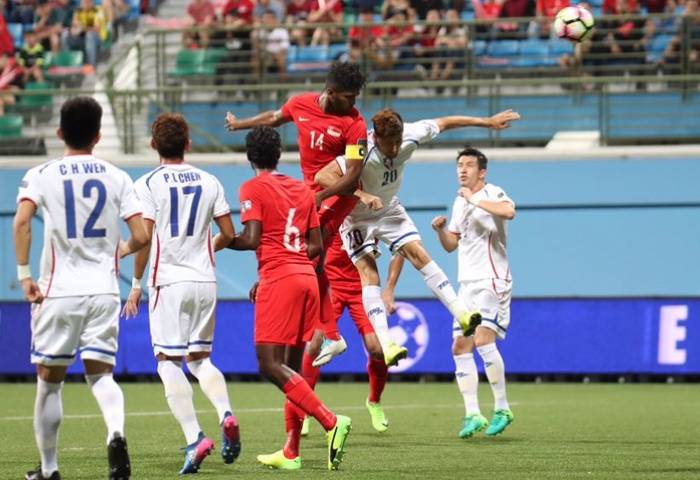
By Neil McCormack
In hindsight, one could have seen this coming. Singapore losing to a country where baseball and basketball are more popular than football probably shouldn’t have come as a surprise, given the Lions’ current miserable form.
This match had upset written all over it, and Singapore did not disappoint. If they were thinking the Chinese Taipei team would be easy pickings, they were sadly mistaken. The visitors had 10 players in their squad who are based overseas. Seven of them are plying their trade in China, while the rest play in Thailand, Spain, and Belgium.
If that was bad, on the same day, the Under-15 team were trashed 12-0 by their Indonesian counterparts, completing an aggregate defeat of 16-0. All this really doesn’t bode well for Singapore football.
The string of bad results makes Singapore’s next match against Turkmenistan in September a must-win if the team really want to get back on track.
But between now and then, what can be done to improve the team? Axing the coach is one obvious option, but given the Football Association of Singapore’s (FAS) history of dithering, this seems unlikely.
The new FAS administration needs to make many changes in order to make Singapore football a force to be reckoned with, not just in ASEAN but in Asia as well.
Short-term solutions like sending a team with all your league’s best players to play in a neighboring country is not the way to go. Right now, the most successful team in ASEAN is Thailand. The FAS can definitely learn a few things from the Football Association of Thailand (FAT) on how to develop a successful domestic league and a winning national team. After all, five AFF Suzuki Cup titles and 15 SEA Games gold medals speak volumes.
As far as the S-League is concerned, the FAS can start by getting rid of the foreign teams. The irony is that they were introduced in 2003 to ‘improve’ diminishing interest. With dwindling crowds for many years now, that clearly hasn’t worked. And by having foreign teams in the S-League, local teams aren’t allowed by the AFC to qualify directly for the AFC Champions League.
The Thai League T1 champions qualify directly for the AFC Champions League group stage. The second and third-placed teams go into Preliminary round 2. Playing in Asia’s most prestigious club competition is without a doubt a great way for players to gain valuable experience. It’s also better than a redundant idea like the poorly conceived ASEAN Super League.
One further thing that can be done is for S-League clubs to tie up with their Thai counterparts. Promising players and coaches from both sides can go over for training stints or loan spells. This will definitely be good for their development.
Perhaps the FAS should also consider hiring a Thai coach. In the early years of the S-League, there were a number of Thai players who plied their trade in Singapore like Tawan Sripan, Surachai Jaturapattarapong and Kiatisuk Senamuang. All three have done well in management and the FAS should look into them should the chance arrive.

